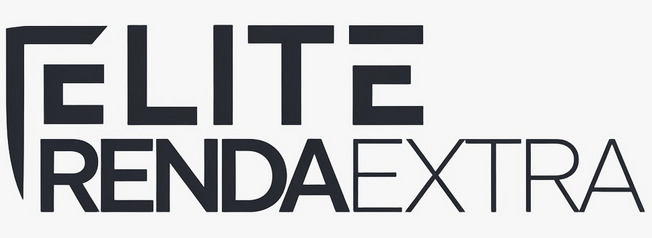Navigating the financial landscape with a less-than-perfect credit score can feel like an uphill battle, especially when you need access to funds. If you’re in Canada and a low credit score is making it difficult to secure a traditional bank loan, it’s important to know that you are not out of options. The financial market has evolved, and there are now numerous lenders who specialize in assisting individuals in your exact situation.
This guide is designed to walk you through the viable personal loan options available in Canada for those with bad credit. We’ll explore different types of lenders, what they look for beyond your score, and how you can increase your chances of approval while avoiding predatory traps. Understanding your choices is the first step toward finding a responsible financial solution.
Understanding “Bad Credit” in the Canadian Context
In Canada, credit scores generally range from 300 to 900. While each lender has its own threshold, a score below 660 is often considered “fair” or “poor,” making it challenging to qualify for loans from major banks. These institutions see a low score as an indicator of higher risk, leading to automatic denials or prohibitively high interest rates.
This is where alternative lenders come in. Unlike the big banks, these companies have built business models around evaluating a borrower’s complete financial profile, not just a three-digit number. They understand that a credit score doesn’t always tell the whole story of your ability to repay a loan today.
Where to Find Personal Loans for Bad Credit in Canada
When traditional avenues are closed, it’s time to look at specialized lenders who are more flexible in their approval criteria. These lenders are often more accessible and offer a streamlined application process.
Online Lenders and Fintech Companies
The digital age has brought a wave of online-only lenders and financial technology (fintech) companies to the forefront. These lenders are a popular choice for Canadians with poor credit because their entire process is designed for speed and convenience. They use advanced algorithms that assess factors like your income, employment stability, and recent payment history to gauge your creditworthiness. Approval can often happen within minutes or hours, with funds deposited in your account in as little as 24 hours.
Credit Unions
Credit unions are member-owned financial cooperatives that often have a strong community focus. Because they serve their members rather than external shareholders, they can sometimes offer more personalized service and flexible lending criteria. If you are a member of a credit union, it’s worth speaking to a loan officer. They may be more willing to listen to your story and consider your relationship with the institution when making a lending decision.
Secured Personal Loans
If you own a significant asset, such as a paid-off vehicle or equity in your home, you may qualify for a secured personal loan. By using your asset as collateral, you significantly reduce the lender’s risk. In return, you can often secure a larger loan amount, a lower interest rate, and a longer repayment term, even with bad credit. The major consideration here is the risk: if you fail to repay the loan, the lender has the right to seize the asset you used as collateral.
Comparing Your Bad Credit Loan Options: A Quick Guide
Understanding the key differences between lenders is crucial. This table provides a general comparison to help you see where you might fit best.
| Lender Type | Typical Interest Rate | Approval Speed | Key Consideration |
|---|---|---|---|
| Online Alternative Lenders | Moderate to High | Fast (Same day to 48 hours) | Focus on income and employment stability. |
| Credit Unions | Low to Moderate | Slower (Several days) | Membership and community ties can help. |
| Secured Loans | Lower | Moderate | Requires a valuable asset as collateral. |
| Payday Lenders | Extremely High | Very Fast | High-risk option; should be a last resort. |
Steps to Apply and Boost Your Approval Chances
Taking a strategic approach to your application can make a significant difference. Don’t just apply blindly; prepare yourself first.
1. Know Your Credit Score
Before you apply, get a copy of your credit report from one of Canada’s two main credit bureaus, Equifax or TransUnion. Review it for any errors that could be dragging your score down and dispute them if necessary. Knowing your exact score helps you target lenders who work with your credit range.
2. Gather Your Documentation
Lenders will want to verify your financial situation. Be prepared by gathering essential documents ahead of time, including:
- Recent pay stubs or proof of income
- Government-issued photo ID
- Recent bank statements
- Proof of address (like a utility bill)
3. Improve Your Debt-to-Income Ratio
Your debt-to-income (DTI) ratio is the percentage of your gross monthly income that goes toward paying your monthly debt payments. Lenders use it to measure your ability to manage monthly payments. Paying down small balances on credit cards or other debts before you apply can lower your DTI and make you a more attractive applicant. For more details on this, you can find helpful resources that explain the importance of the DTI ratio in lending decisions.
A Word of Caution: What to Avoid
While there are many legitimate lenders, the bad credit loan market can also attract predatory players. It’s crucial to be able to spot the red flags.
The Pitfalls of “Guaranteed Approval”
Be extremely wary of any lender that advertises “guaranteed approval loans.” Reputable lenders must perform due diligence and assess risk; they cannot guarantee approval to everyone. This is often a marketing tactic used by payday lenders who charge astronomical interest rates and fees, trapping borrowers in a cycle of debt. The Government of Canada provides clear warnings and regulations regarding these types of high-cost credit products.
Red Flags of Predatory Lenders
Steer clear of any lender that exhibits the following warning signs:
- Asks for an upfront “insurance” or “processing” fee before approval.
- Doesn’t seem to care about your credit history or ability to repay.
- Pressures you to sign immediately without giving you time to read the contract.
- Is not transparent about interest rates, fees, and total repayment amount.
Finding a loan with bad credit is entirely possible in Canada, but it requires diligence. Focus on reputable alternative lenders, understand the terms completely, and use the loan as an opportunity to rebuild your financial standing. Making consistent, on-time payments on a new loan can be a powerful step toward improving your credit score over time.
For an official and comprehensive overview of borrowing rights and responsibilities, the Financial Consumer Agency of Canada offers invaluable guidance on personal loan options in Canada for bad credit, ensuring you are well-informed before making a decision.

